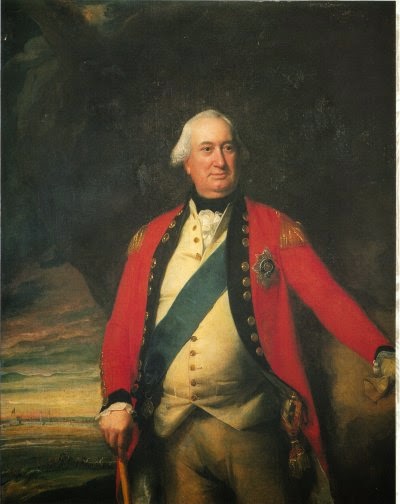The Battle of Yorktown, also known as the Siege of Yorktown was the final engagement between the Americans and the British during the Revolutionary War. There was really no fighting, it was basically an event to see who could last longer then the other. Charles Cornwallis who was the commander of the British army had not had much success in the Southern part of the colonies. He realized that if he was going to put the final dagger into the colonists he would have to move back to the north. His target was Yorktown. Yorktown was significant because it was near the Atlantic Ocean. Cornwallis and the British knew that they could be resupplied easily by their navy. Around this same time the French had arrived in the colonies to assist George Washington and the Colonial army. The French had heard that the British were planning to take Yorktown and set up a camp there. Washington was wanting to take New York, but he was easily convinced by the French to head to Yorktown. Cornwallis had already arrived at Yorktown and set up camp. The weather was cold and snowy and after a while the British began to run low on supplies. Cornwallis had to send to England for supply ships. Unbeknownst to Cornwallis, the French navy was on their way to Yorktown to meet up with the Colonial army. By the time the supply ships arrived at Yorktown, the French had surrounded the port. They engaged in a minor skirmish that only lasted a few hours. The British ships were forced to turn around, and the British army was trapped. Cornwallis realized that he was a lame duck. He had the French navy on one side of him, and he had the French and Colonial army on the other. Cornwallis had no other choice but to surrender his army to Washington. The Revolutionary War was over.
Above is a picture of George Washington.
Above is a picture of Charles Cornwallis.
Stay tuned for more blog posts about tales from Tennessee and beyond.



Warfare is a fascinating subject. Despite the dubious morality of using violence to achieve personal or political aims. It remains that conflict has been used to do just that throughout recorded history.
ReplyDeleteYour article is very well done, a good read.
Warfare is a fascinating subject. Despite the dubious morality of using violence to achieve personal or political aims. It remains that conflict has been used to do just that throughout recorded history.
ReplyDeleteYour article is very well done, a good read.
Thanks for the comment!! You are 100% correct about warfare. Thanks again!!
ReplyDelete